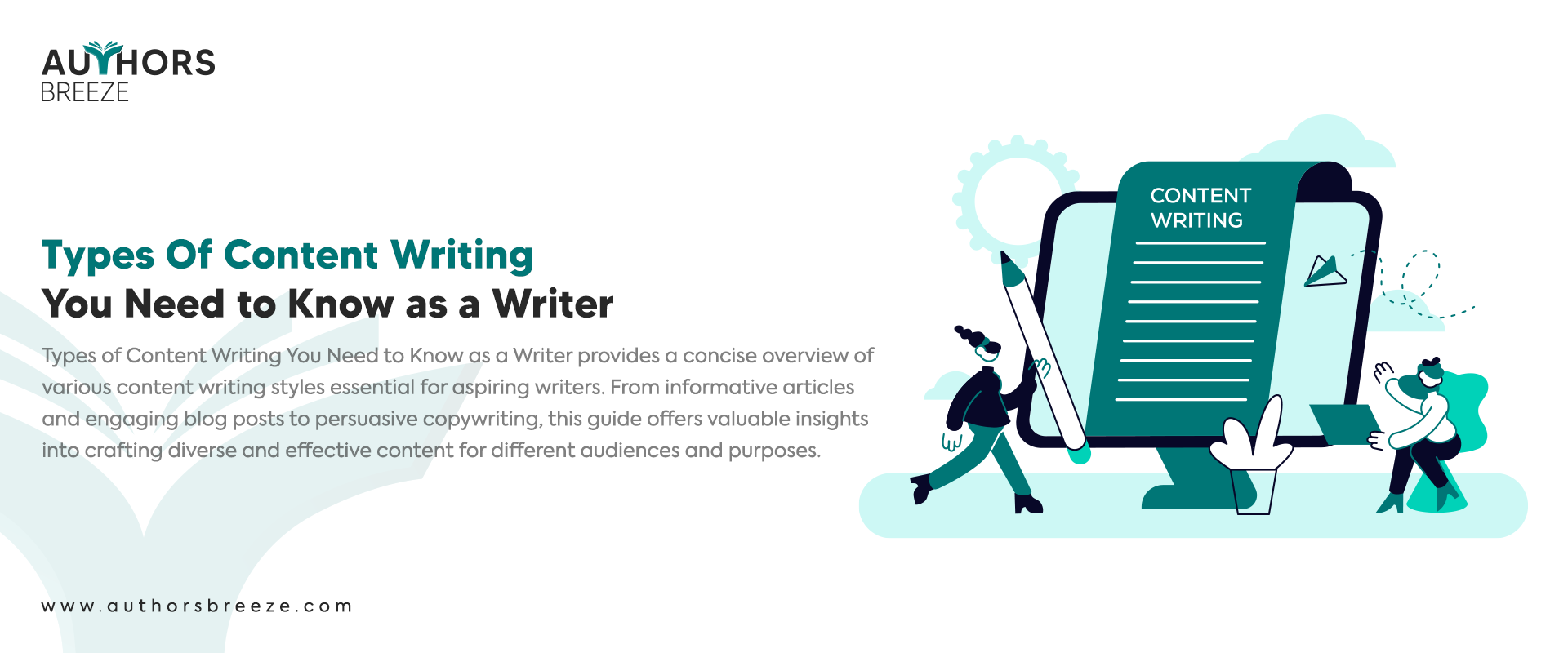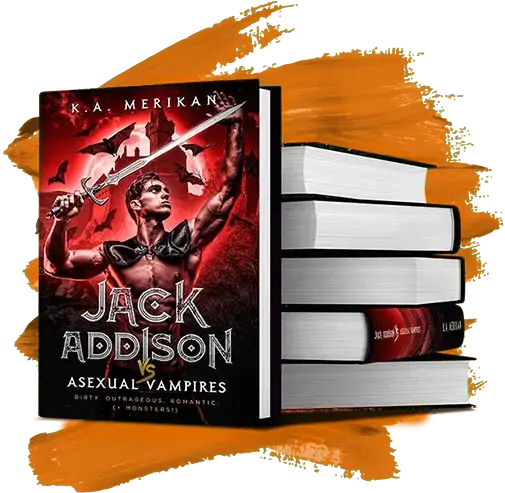Don’t Have Time to Read? Listen to this Article Instead!
Key Takeaways: Types of Content Writing
- Content writing delivers messages to the audience, and there are many types of content writing.
- Copywriting involves persuasive writing to motivate people to take action.
- Creative writing allows writers to use their imagination to create stories, poetry, and more.
- Technical writing is where writers explain complex topics in an easy-to-understand way.
- Ghostwriting is writing content for someone else who gets the credit, such as books and speeches.
- Academic writing focuses on formal writing for educational content.
- SEO content writing aims to create content that ranks well in search engines.
- Blog writing involves writing articles on various topics for websites.
- Email writing focuses on crafting clear and direct messages for effective communication and engagement.
- Long-form content writing offers a detailed exploration of subjects in over 1,000 words.
- Web content writing creates specific online content to engage audiences and attract business.
- Feature writing offers in-depth articles on trends, people, and issues.
- Social media writing entails crafting content for social platforms.
- News writing reports on current events with accuracy, brevity, and clarity.
- Business writing generates professional content for business purposes, such as reports and proposals.
Fulfill Your Content Needs
Authors Breeze is the leading writing and publishing company that can help you with any type of content writing!
Introduction to Types of Content Writing
Content writing is the core of marketing. It is often considered the “aorta” of digital marketing and online presence. The aorta is the main artery in the human body that supplies oxygenated blood to the circulatory system. Similarly, content serves as the primary channel through which businesses and people can convey their value proposition and engage with their audience.
Content writing helps you connect with your audience. There are many ways to communicate with your audience. Therefore, there are different types of content writing. If you want to persuade readers, then copywriting is your go-to option. If you want to establish your brand voice, blogging is key. For direct communication, email writing can strengthen your relationship with your audience on a personal level.
What are the Types Of Content Writing?
Content writing has a wide array of formats and styles. In addition, it caters to various platforms, audiences, and objectives. So, let’s look at some of the top types of content writing:
Copywriting
“Copy is not written. Copy is assembled.” – Eugene Schwartz.
Copywriting is where you use persuasive writing to encourage people to take action. For example, you convince readers to buy your book as an author. You will see the use of copywriting in the following:
- Advertisements and sales copy
- Website and landing page copy
- Email marketing campaigns
- Social media ads and promotional posts
According to data compiled from Payscale and Salary.com, 80% of copywriters make between $35k and $65k annually. So, if you are confused about which one to choose between types of content writing, this statistic can help you clear your confusion.
To become a copywriter, you need persuasive, solid writing, an understanding of target audience psychology, clear calls to action, and knowledge of marketing principles. In addition, you can enroll in content writing courses to hone your skills.
Once, one of our copywriters wrote a landing page for a local bakery. He highlighted the owner’s passion for fresh ingredients using sensory details. This copywriting technique resulted in a 20% rise in online orders for them.
Creative Writing
“Creativity is allowing yourself to make mistakes. Art is knowing which ones to keep.” – Scott Adams.
Creative writing is an art that lets writers use their imagination to add personality and creativity to their work beyond just technical or traditional writing styles. Primarily, writers use their creativity in:
- Novels and short stories
- Poetry and plays
- Screenplays for movies or television
- Narrative non-fiction
Can you think outside the box? Does your brain let your imagination go wild? Then, creative writing is the perfect choice for you. In order to be a creative writer, you must be able to develop engaging characters and plots. In addition, you need strong storytelling skills and mastery of language.
Technical Writing
“Technical writing is a continuous process of learning, carefully gathering, sifting, organizing, and assessing, all while trying to craft something that makes sense for a user.” – Krista Van Laan.
So, what is technical writing? Technical writing is when people write about complex subjects, such as computer software or medical tips, in a way that’s easy to understand. A technical writer mostly writes:
- User manuals and help documents
- FAQs and troubleshooting guides
- Technical reports and whitepapers
- Product specification sheets
The median annual wage for technical writers was $79,960 in May 2022. Do you have the ability to convey complex ideas or instructions in an easy-to-understand way for readers? If so, you can be a perfect fit for technical writing. You just need subject matter expertise, strong technical skills, and attention to detail.
The technical content writing team at Authors Breeze proofread user manuals for a new software program and ensured they were error-free. Our work reduced customer support inquiries by 20% due to clear and concise instructions.
Make Your Content Errorless
If you are looking for proofreaders to help you spot mistakes in your manuscripts and improve their quality, then we are here for you!
Ghostwriting
“The act of memory is an act of ghostwriting.” – David Mitchell.
Ghostwriting is where you get paid to write a book or any content for someone else, who then gets to be called the author without your name appearing anywhere. Ghostwriters usually write:
- Books (fiction and non-fiction)
- Articles and blog posts for thought leaders or executives
- Speeches and presentations
- Social media profiles and posts for high-profile individuals
In the content writing industry, 60% of the population is ghostwriters, and about 40% are Notedwriters (Recognized writers). If you are new to the writing world, then ghostwriting can be a lucrative option for you as you can learn from the people you ghostwrite for and because it is less stressful. However, it would be best if you had adaptability to different styles, the ability to capture the voice of another person, discretion, and strong research skills.
One of Authors Breeze’s biggest achievements is when we ghostwrote a CEO’s memoir. Our writers understand their voices and incorporate anecdotes about overcoming industry challenges. It made the story relatable and inspiring. This experience of ours can help you learn how to do effective ghostwriting.
Looking for Ghostwriters?
Authors Breeze is the leading ghostwriting company that provides exceptional writers who write for you and ensure your ideas and voice shine!
Academic Writing
“The best way to become acquainted with a subject is to write about it.” – Benjamin Disraeli.
Academic writing is a formal way of writing for universities and scholarly works. For example, the content you will find in journals and educational books. In addition, it is how you should write your essays, research papers, and dissertations. An academic writer helps students in:
- Research papers and journal articles
- Theses and dissertations
- Conference papers and presentations
- Literature reviews
Academic writing is not about spoon-feeding students but to help them. According to a research article, 58% of students say guidance from someone in a similar study area can strengthen their academics. So, if you want to assist students, you should have academic excellence, critical thinking, the ability to cite sources properly, and adherence to specific academic styles (APA, MLA, etc).
SEO Content Writing
“SEO isn’t about content creation. It’s about content promotion.” – Brian Dean.
SEO writing is creating content with specific keywords to show up on the first page of search engines such as Google. An SEO writer makes sure the content is of good quality and organized for easy reading. SEO writers are primarily responsible for the following:
- Keyword-rich articles
- Blog posts optimized for search engines
- Product descriptions and category pages for e-commerce sites
- Landing pages designed for specific search queries
93% of users begin their online experience with a search engine. It showcases how important it is to write content for search engines. If you want to rank well on search engines, you should be able to produce fantastic content. This is where SEO writing becomes relevant.
Do you want to become an SEO content writer? Then, you must have strong content writing skills. For example, you should be able to do keyword research. In addition, you should be familiar with on-page optimization and search engine algorithms. Also, the ability to write engaging content that ranks well is a must. Content writing tools such as keyword planners and SEO analysis software are invaluable for writers to produce content that resonates with both readers and search algorithms.
Need SEO-Optimized Articles?
Engage your audience and drive more traffic with our keyword-enriched and optimized articles for search engines!
Blog Writing/Blogging
“Don’t focus on having a great blog. Focus on producing a blog that’s great for your readers.” – Brian Clark.
Blog writing is crafting and sharing articles, photos, or digital media on a website, which can belong to a person or a company, often focusing on detailed topics. A blogger writes various types of blogs, such as:
- Personal or corporate blogs
- Guest posts on other blogs or websites
- How-to guides and tutorials
- Opinion pieces or editorials
Among 1.9 billion websites online, today, there are over 600 million blogs. There are over 32 million bloggers in America as of 2024. So, in case you choose to be a blogger, you need to be the best to stand out. For this, you should have a conversational writing style and the expertise to develop a consistent brand voice, audience engagement, and content promotion skills.
Our blog content writers managed a lifestyle blog with engaging content on fashion, food, and travel. As a result, we grew the blog’s audience to 5,000 monthly readers through consistent and informative content.
Also Read: Effective Blog Writing Tips for Authors & Storytellers
Email Writing
“Email has an ability many channels don’t: creating valuable, personal touches—at scale.” – David Newman.
If we talk about email writing, it is where we write and manage messages electronically, favored for its speed and low cost. In addition, it is crucial to craft emails clearly and directly to engage others and get responses. Writing emails can involve:
- Newsletters
- Welcome emails for new subscribers or customers
- Transactional emails (order confirmations, receipts, etc.)
- Promotional emails and special offers
For crafting effective emails, the following skills are required:
- Clear and concise communication
- Compelling subject lines
- A/B testing for best results
- Personalization
4.24% of email traffic leads to purchases. On the other hand, only 2.49% of search traffic and 0.59% of social traffic do the same. We recently experienced that magic with an email sequence that took a prospect from mildly interested to a purchase.
Crafting captivating email sequences promoting new book releases for our company was tricky. However, we infuse subject lines with intrigue and incorporate personalized recommendations based on past purchases. As a result, it significantly boosted book sales.
Long-Form Content Writing
“Business plans with too much detail, books with too much proof, politicians with too much granularity … it seems as though more data is a good thing because data proves the case.” – Seth Godin.
Long-form content refers to detailed writing that is over 1,000 words, usually up to 7,500. It provides an in-depth look at complex subjects to offer valuable information to readers. Long-form writing is a broad category that includes:
- In-depth blog posts and articles exceeding 2,000 words.
- E-books
- White Papers
- Comprehensive guides and how-tos
- Research studies and reports
According to a study by Content Hacker:
“Long-form content brought in 62x more ideal customers than short-form content.”
“Long-form content brought 198.75% more revenue.”
“Customers who found them through long-form content had ZERO disputes and wanted ZERO refunds.”
The above study tells us that long-form content is as effective as ever. So, are you capable of doing thorough research? Do you know how to write content? Moreover, do you have excellent content organization skills, storytelling, and strong editing and proofreading expertise? Then, you can quickly produce detailed content.
Web Content Writing
“Web content is the meat in the sandwich, not the icing on the cake.” – Karen McGrane.
A website content writer crafts specialized content for websites to engage a specific audience and attract business. Website content writing is a type of copywriting focused on online relevance. A web copywriter creates content for the following pages of the website:
- Home Page
- About Us Page
- Service/Product Pages
- Landing Pages
- FAQs
A writer interested in writing for the web should understand web design principles, write scannable content, and have knowledge of basic HTML and SEO best practices.
Research shows that 77% of Internet users read web content regularly before making a purchase-related decision. We revamped an author’s website and showcased a writer’s unique journey and personality. This human touch led to a massive increase in ebook purchases.
Convert Your Audience to Customers
If you want to turn your prospects into leads, then Authors Breeze should be your choice for author website and website content writing.
Feature Writing
“A feature story should begin with velocity. It shouldn’t just mumble and meander.” – Joel Achenbach,
Feature writing is a recognized journalism style that focuses on detailed articles about current trends, notable people, and critical issues. It offers more depth than typical news stories. You will find feature writing in the form of:
- Magazine and newspaper feature articles
- Human interest stories
- Profile pieces on individuals or organizations
- In-depth explorations of trends or issues
Are you capable of doing in-depth research and conducting multiple interviews? Are your storytelling skills strong enough to capture the reader’s interest? That being the case, feature writing is for you. Feature writers are 79% more likely to work at private companies than education companies.
Social Media Writing
“Content is fire, social media is gasoline.” – Jay Baer.
Social media content writing combines storytelling with data and strategic communication to engage customers, helping to grow an online following and enhance brand visibility. A social media manager writes the following:
- Posts and updates for platforms such as Facebook, Twitter, and Instagram
- Social media ad copy
- Captions for images and videos
- Stories and live video content
If you are interested in crafting content for social media, then you should have the following:
- Conversational and engaging writing style
- Understanding of different social media platforms and their audiences
- Expertise in crafting concise messages.
There are at least 8.1 billion people in the world, and over 4.95 billion of this population uses social media. Therefore, social media is the best way to reach maximum readers and connect with your audience.
Our social media posts for a language learning book didn’t just promote a book. It created a community of self-learners connected around the author. We shared inspiring stories of users conquering new languages. As a result, the author reached readers interested in learning different languages.
Promote Your Book With Us
Start your book advertising campaign with us. We utilize expert strategies to get your book noticed and loved.
News Writing
“Literature is the art of writing something that will be read twice; journalism is what will be grasped at once.”- Cyril Connolly.
Journalism or news writing, used in newspapers, radio, and TV, focuses on the audience, tone, and the ABCs: Accuracy, Brevity, and Clarity to report stories effectively. A journalist should be able to write:
- News articles and bulletins
- Press releases
- Investigative reports
- News analysis and commentary
Writing news means:
- Accuracy
- Objectivity
- Competence to meet deadlines.
- Solid research skills.
- Clear and concise writing style.
According to Cision’s 2023 State of the Media report, the number one priority of journalists is accuracy. In addition, 27% of journalists faced challenges in maintaining credibility as a trusted source. Hence, your biggest concern as a news writer will be being reliable and trustworthy.
Business Writing
“Your writing doesn’t have to be boring just because it’s for other businesses. Businesses have people who read stuff.” – Valeria Maltoni.
Business content writing means creating marketing material, such as press releases and financial reports, with information relevant to the business. A business development executive or manager does most of the writing work for firms, for example:
- Business plans
- Reports and proposals
- Brochures and flyers
- Case studies
- Corporate communications
A 2023 survey estimates that bad business writing or, you can say, ineffective communication costs American businesses $2 trillion annually. Therefore, a business writer should have a firm grip on business principles, knowledge of target audience needs, and persuasive writing skills. In addition, they should be able to write in a professional tone.
[Also Read: Key Benefits of Content Writing for Brands and Businesses]
How to Choose the Type of Content Writing?
From various types of content writing, choosing one for your writing career can depend on your preferences, interests, and strengths! Moreover, your natural inclinations can help you make this decision.
Are you good at persuasive writing? Then, copywriting is for you. Technical writing can be your go-to option if you have a knack for explaining complex ideas and concepts clearly and simply. Blogging is excellent for those who enjoy sharing knowledge or insights in a conversational tone.
Do you have a creative edge? Can you tell compelling stories? In that case, creative writing is what suits you. Academic writing is ideal for those who excel in educational research and formal writing. If you know how to write concisely and impartially, often under tight deadlines, news writing is the perfect field.
You can also consider the market demand. Some niches may be oversaturated. On the other hand, others might have a high demand for content writers. Research job postings, read industry reports, and talk to professionals in your network. As a result, you can gauge where your interests could meet demand.
How to Choose Content for Your Business?
There are many types of written content, such as articles, blogs, books, white papers, and emails. Here is a guide on how to select the best content:
Identify Your Goal
First, clarify what you want to achieve with your content. Different goals require different types of content writing. For example, if you’re going to educate your audience, consider how-to guides, tutorials, or educational articles. Product descriptions, sales copy, or landing pages might be more appropriate if you want to sell. In case you want to inform your readers, news articles, press releases, or reports can provide updates and important information. If you like to engage your customers, blogs, interviews, and opinion pieces can foster community and conversation.
Understand Your Audience
Knowing your audience is crucial. Different demographics and audience types may prefer different styles and formats of content. Therefore, consider their demographics, such as age, location, gender, and interests. It can influence content preference.
Take notes of their pain points. What problems does your audience face that your content can solve? Moreover, keep the engagement level. How familiar is your audience with your topic? This can dictate the complexity and depth of your content.
Choose the Right Format
Depending on your goal and audience, specific formats might work better. Articles and blog posts are versatile. They can be tailored to educate, inform, or entertain. White papers and ebooks are brilliant for in-depth exploration of topics, typically used to educate or generate leads. Case studies and testimonials are ideal for showcasing success stories and testimonials to build trust.
Social media posts are short as well as engaging. They can capture attention and encourage sharing. Email Newsletters are personalized content that you can aim at building relationships with your audience.
Consider SEO and Online Presence
SEO (Search Engine Optimization) is a significant factor if your content will be published online. Therefore, you need to choose content types that can also help improve your visibility on search engines:
- Use keywords naturally within your content.
- Create quality content that provides value.
- Include calls-to-action (CTAs) where appropriate to guide readers on what to do next.
Content preferences can change over time. So, you should evaluate the performance of your content regularly and adapt your content as per the changes. You can use analytics tools to monitor engagement, conversions, and other vital metrics. In addition, feedback from your audience is valuable. It can provide helpful insights into how your content could be improved or what new types of content they would like to see.
Frequently Asked Questions
What are the 4 basic writing styles in content writing?
There are four main writing styles writers usually employ:
- Persuasive
- Narrative
- Expository
- Descriptive
What are the 4 pillars of content writing?
The four pillars of content writing are:
- Structure
- Style
- Substance
- Strategy
What type of content writing is in demand?
There are many types of content writing that are popular right now. However, some of the most in-demand writers are:
- Social Media Writers
- Blog Writers/Blogger
- Technical writers
- Scriptwriters
- Copywriters
Conclusion
We hope this comprehensive overview of the different types of content writing helps you identify the areas that best suit your interests and skills. If you dedicate yourself and learn continuously, you can excel in any field of content writing!
The world of content writing is vast. Moreover, it offers a variety of opportunities for aspiring writers. You can learn different types of content writing and the skills required for each. As a result, you can choose a path that aligns with your interests and strengths as well as position yourself for success in this growing field.
Learn content writing or hire the right kind of content writer with Authors Breeze. We have content writing professionals who are experts in their respective subject matters. So, if you have any queries or need any help, we are here to assist.
Convert Your Readers into Customers
Write content with the help of Authors Breeze and increase the chance of them becoming your customers.






